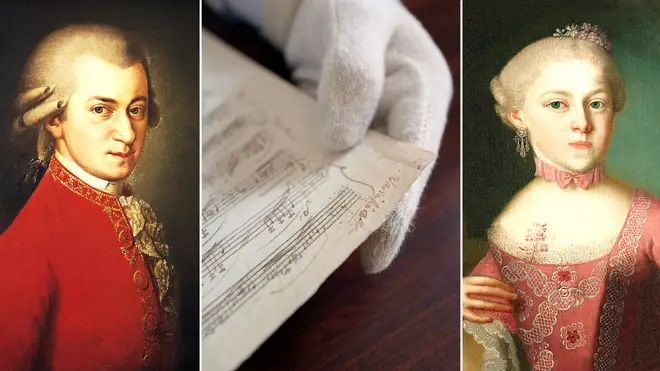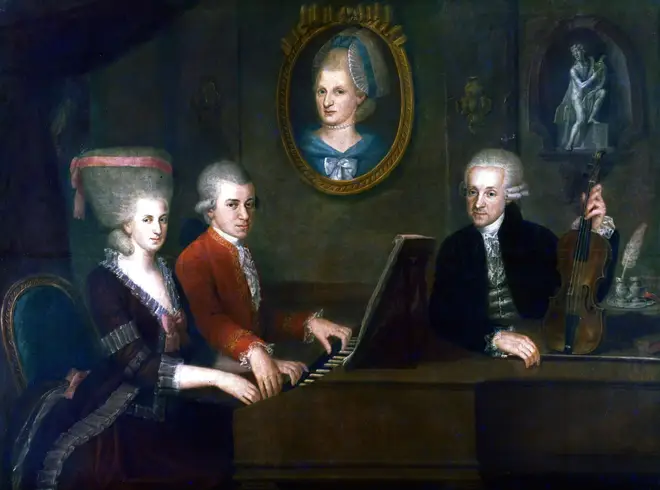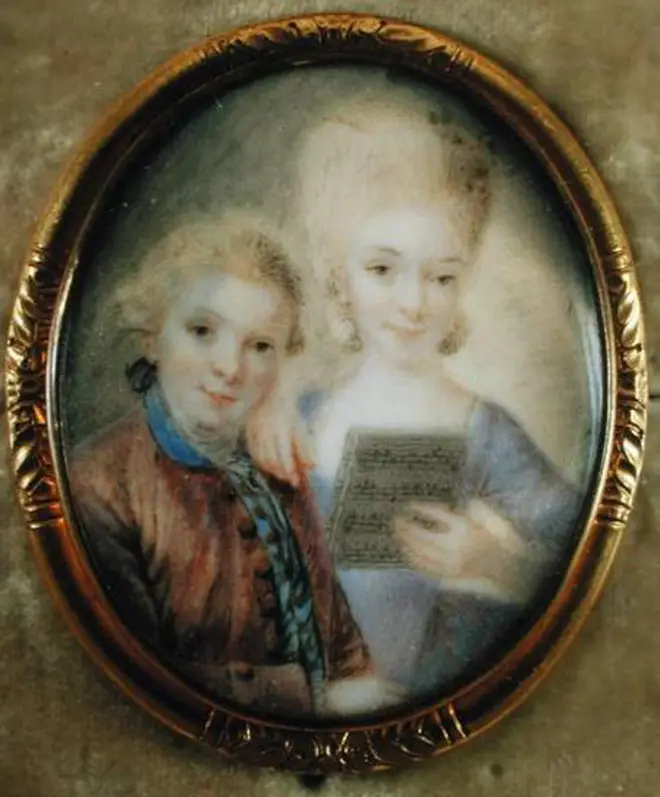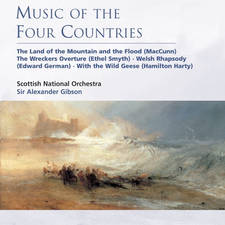Mozart claimed credit for his sister’s compositions, says former conductor turned professor
10 January 2022, 11:20 | Updated: 10 January 2022, 12:59

An Australian professor has found evidence that one of the most famous composers to ever live, claimed credit for some of his older sister’s compositions.
Listen to this article
Born in 1756, Wolfgang Amadeus Mozart was the youngest of seven children in the Mozart household, five of whom died during infancy.
His surviving sibling was his older sister, Maria Anna Mozart, was also an accomplished musician like her brother and father, violinist Leopold Mozart.
Maria, nicknamed Nannerl, has been described by modern scholars similarly to her brother, as a child prodigy, and from early in her childhood, she was achieving top billing in concerts performing on the harpsichord and fortepiano.
There is also evidence that Nannerl wrote her own compositions, but none have survived. Or at least that was the consensus until retired Australian professor, Martin Jarvis, suggested that three out of five of Mozart’s violin concertos could have actually been composed by Nannerl.
Read more: The composer who was once dubbed ‘Japan’s Beethoven’ – and how it was all outed as a fraud

The evidence
Professor Jarvis has been forensically studying original Mozart manuscripts since 2007 while working as professor and lecturer of music at Charles Darwin University, Australia.
He specifically focused on Mozart’s five violin concertos, a favourite among string players, and began to notice something odd about three of the works.
The professor told ABC News, “Of the five violin concertos, three of them were composed by a person called Wolfgang Amadeus Mozart, and two of them – in a different handwriting – were composed apparently by Amadeus Wolfgang Mozart.
“We know that [Nannerl] composed because even in some of [his] letters, Mozart compliments her on her music”, and, “We know that various composers, including Bach, copied other people’s music and then put their name on it.”
Read more: Was Mozart’s sister actually the most talented musician in the family?

Ezi - Mozart Violin Concerto No.3
Nannerl toured with her younger brother Mozart when they were children, and even embarked on an 18-month concert tour in London starting when she was just 13, with her and her brother billed as “wunderkinder”. She was even billed first, and contemporaneous reviews praised her performances.
However, this all stopped when she turned 18, as performing as a child was one thing in the 18th century, but performing as a woman could have dire consequences on a person’s reputation.
Growing up, many biographers place Nannerl as an idol in the young Mozart’s life. In Maynard Soloman’s Mozart: A Life, he writes: “At three, Mozart was inspired to study music by observing his father’s instruction of [Nannerl]; he wanted to be like her.”
Their close relationship would continue throughout childhood, and Soloman also notes that Mozart would occasionally write entries into Nannerl’s diary, but refer to himself in the third person.
However, sources differ on whether the two siblings remained close during adulthood, with Soloman suggesting that Wolfgang and Nannerl drifted apart completely in later life, and correspondence with each other stopped completely three years before Mozart’s premature death at the age of 35.
Read more: Netflix places a statue of Mozart’s sister to celebrate history’s overshadowed women

Nannerl sent at least one composition to both her father and her brother as an adult, and Mozart wrote back praising the composition and encouraging her to write more.
Professor Jarvis therefore argues that it is also possible, as opposed to simply taking credit for his sister’s work, that Nannerl had chosen to have her work published at the time under her brother’s name due to her gender.
Jarvis suggests, “She may well have pushed herself out of the picture because of the value of the manuscripts if they were thought to be by her brother”.
This is not the first time the Australian professor has questioned the originality of a composer’s work. In 2011, Jarvis also suggested that Bach plagiarised his second wife’s work, the singer, Anna Magdalena Bach.
We may well never know for sure if Nannerl’s compositions survive through Mozart’s body of work, or if her original compositions will remain unfound, but it is clear that Nannerl had exceptional talent when it came to musical prowess.
Her father once described her as “one of the most skilful players in Europe”, and whether or not her skill lives on in Mozart’s compositions, her memory should be celebrated for the great musician she was.
























